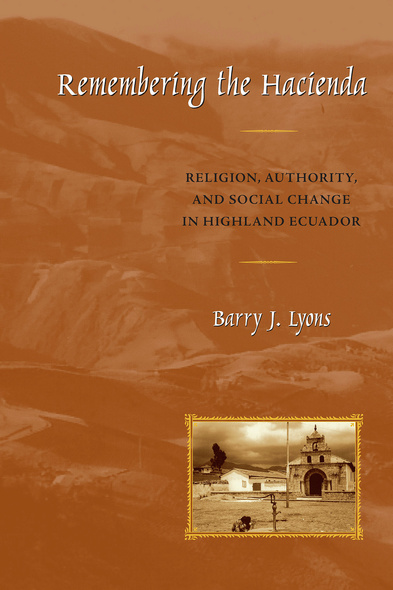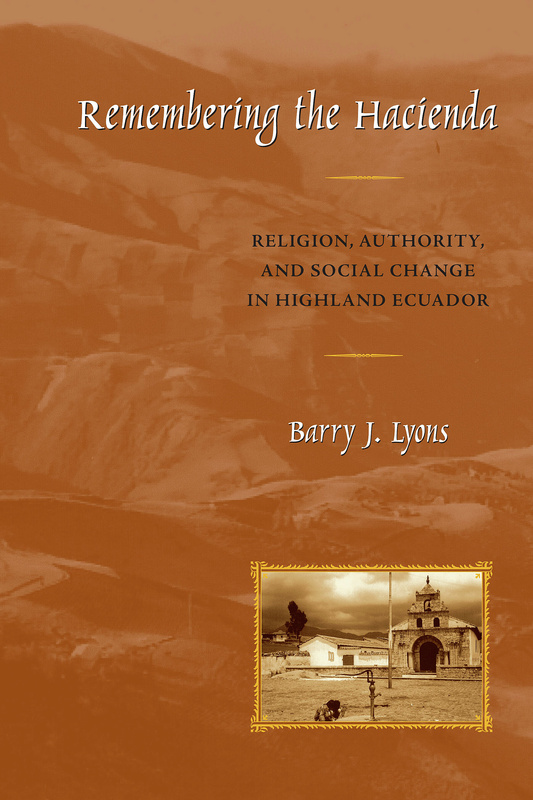Remembering the Hacienda
Religion, Authority, and Social Change in Highland Ecuador
From the colonial period through the mid-twentieth century, haciendas dominated the Latin American countryside. In the Ecuadorian Andes, Runa—Quichua-speaking indigenous people—worked on these large agrarian estates as virtual serfs. In Remembering the Hacienda: Religion, Authority, and Social Change in Highland Ecuador, Barry Lyons probes the workings of power on haciendas and explores the hacienda's contemporary legacy.
Lyons lived for three years in a Runa village and conducted in-depth interviews with elderly former hacienda laborers. He combines their wrenching accounts with archival evidence to paint an astonishing portrait of daily life on haciendas. Lyons also develops an innovative analysis of hacienda discipline and authority relations. Remembering the Hacienda explains the role of religion as well as the reshaping of Runa culture and identity under the impact of land reform and liberation theology.
This beautifully written book is a major contribution to the understanding of social control and domination. It will be valuable reading for a broad audience in anthropology, history, Latin American studies, and religious studies.
Barry Lyons is Associate Professor of Anthropology at Wayne State University in Detroit.
- Acknowledgments
- Part One: Introduction
- 1. Introduction
- 2. A History of Pangor and Monjas Corral
- Part Two: Society and Resistance
- 3. Hacienda Society and the Base of the Triangle
- 4. Saint Rose's Blessings
- 5. Reciprocity and Resistance
- Part Three: Respect and Authority
- 6. Disobedience and Respect: Two Accounts
- 7. Respect, Authority, and Discipline
- Part Four: The Legacy of the Hacienda
- 8. The Demise of the Hacienda
- 9. Liberation Theology and Ethnic Resurgence
- Notes
- Bibliography
- Index





